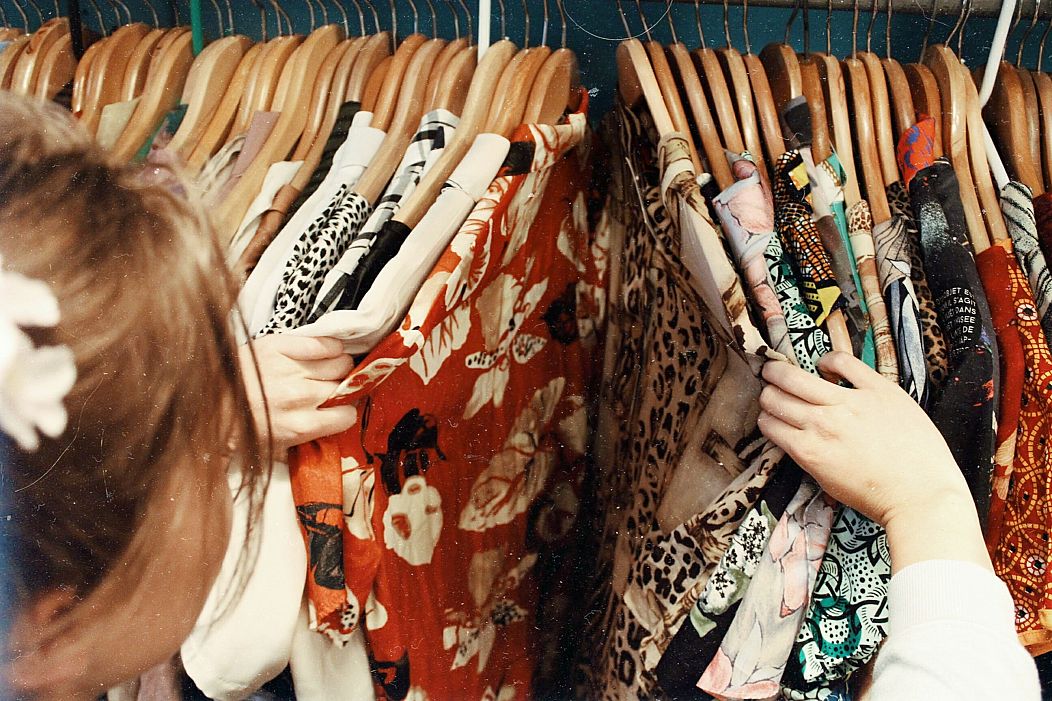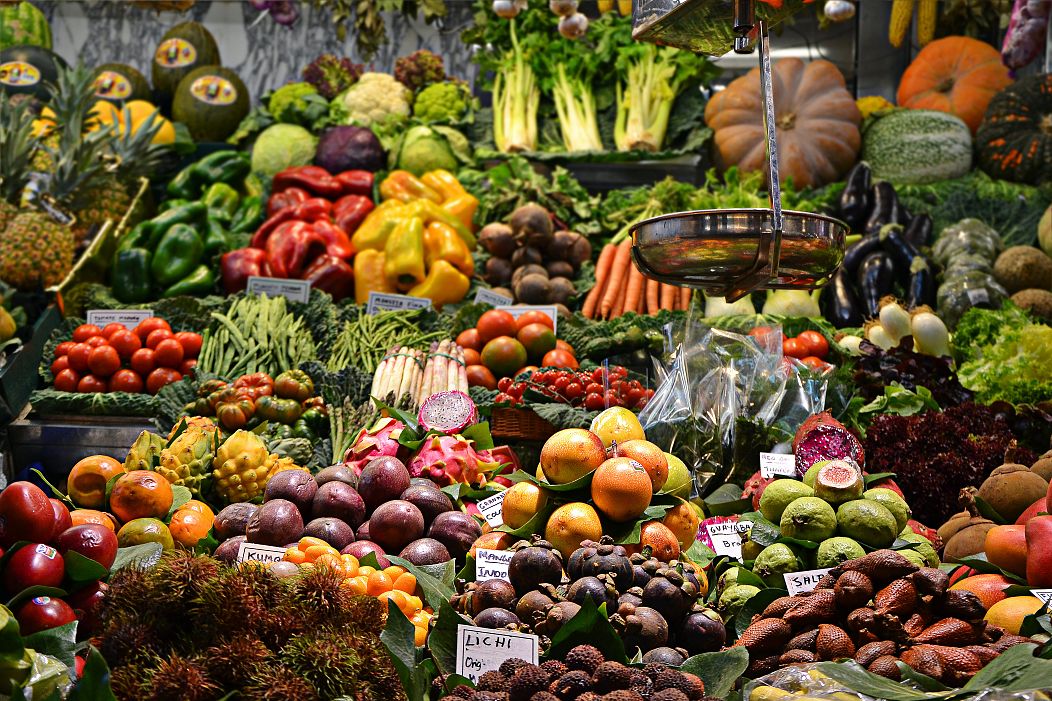From food waste apps to ethical fashion platforms - what are the best tools to help us form green habits?
Sustainability is a buzzword nowadays.
 ADVERTISEMENT
ADVERTISEMENT
 ADVERTISEMENT
ADVERTISEMENT
It might be a trend, but it’s not one that will go out of fashion. Living sustainably means adapting our lives so that we avoid further depletion of the earth’s natural resources. From conserving water and improving air quality, to taking care of the natural world so that forests can soak up carbon dioxide and wildlife can thrive, there is so much we can help with.
But how does this translate to daily life? There are plenty of real, tangible things we can do to live within our means and shift to a greener routine. It can be hard, you might spend hours carefully choosing somewhere to shop, making sure you’re minimising food miles by eating locally and in season, only to find an article the next day which calls out the store for shady labour practices.
When it comes to buying clothes or products online, companies may boast about their corporate social responsibility programmes, but in reality it’s little more than a marketing ploy to distract from the more unethical reality.
But rather than give up, we must adjust and challenge what we are presented with. At euronews Living, we aren’t here to make you feel guilty, but we want to empower you to incorporate sustainability into your life as simply and efficiently as possible.
Here are eight ways to make it work for you.
1. Use a sustainable living calculator
Ethical choices can sometimes be the more expensive option. From free-range eggs to milk alternatives to independent clothing brands, the costs can rack up.
Online comparison service money.co.uk has developed a ‘Sustainable Living Calculator’ which compares the cost of green living against traditional living. The team at money.co.uk found that green choices can set you back by an extra £2,000 (€2,300) a year on average.
The sustainable living calculator places the environmental benefits against the costs, so you can factor it into your decision-making. It’s not about making a person feel guilt about any of their choices, instead it shows where a relatively small change financially could have a big impact environmentally.
And this tool shows you that every choice you make has a real-world effect.
2. An ethical wardrobe
If you’re looking to shake-up your wardrobe, but want to ditch fast fashion, there are plenty of brilliant articles which will give you the low-down on the best eco brands. But if you don’t have our pieces bookmarked and ready to go, Ethical Made Easy is perhaps the next best thing.
The site serves as a database for ethical, sustainable clothing brands - allowing you to feel truly comfortable in your decisions.
Ethical Made Easy works around three core values: transparency, freedom, and integrity. So if a company isn’t transparent about its supply chain, it won’t be featured.
The directory goes beyond fashion too, with skincare, homewares, and accessories all included.
3. Mixing up your shopping habits
On the subject of shopping, there’s also Done Good, which has rounded up over 2,000 brands working to make the planet a better place. It’s effectively a digital department store with only ethical products listed.
It only includes companies who pay fair wages, with transparent practices around trafficking and child labour, as well as those who use eco-friendly production processes and take other major steps to keep land, air, and water clean.
And there’s a browser plugin option too, so you don’t have to change anything about your normal shopping habits - Done Good will instead notify you when there’s an ethical option available for the item you’re looking at.
4. Searching greenly
When we talk about sustainability, the focus is often on real-world interactions, so we don’t often consider the impact our digital behaviour has on the environment.
This is where Ecosia comes in. As recent research has found Google makes over €140bn every year in advertising revenue from searches, green search engines are using revenue to plant trees and fund other planet-saving initiatives.
This is a totally free way to live ethically and takes next to no time to incorporate into your standard digital routine.
5. Clean your inbox
While considering our digital footprint, it’s also worth looking at waste. Spam, unread emails, and old useless messages may not take up any physical space, but they do require physical resources - especially water.
Data centres use billions of litres of water to cool down computers, and with water scarcity a growing concern, maybe it’s time we all cleared up our inboxes. In fact, 60 per cent of emails are never opened and each email stored emits a staggering 10g of CO2 into the atmosphere.
But rather than stress about that mounting pile of unread marketing in your inbox from 2013, there are plenty of apps and websites that will clean things up for you for free. Cleanfox works to detect newsletters and other unwanted messages, sorts the mess for you, and then helps you categorise your inbox and unsubscribe from the stuff you don’t need.
6. What’s in your fridge?
Food waste is a huge contributor to environmental damage, with around a third of food produced for human consumption going to landfill each year, according to the UN’s Food and Agriculture Organisation.
This is a problem in a multitude of ways. Untouched natural land like rainforests is being cut down for farming, both for livestock grazing and growing crops. With around a third of this potentially going to waste, we are destroying hugely important areas of natural resources completely unjustifiably.
When you factor in the airmiles of food, as well as the often extensive use of plastic and other packaging - you can see how food has a major effect on the environment. And that’s without mentioning the methane and other harmful greenhouse gases emitted when food waste rots in landfills.
So when you are looking into your fridge at two leeks, a couple of potatoes, and a rogue bit of cheese, instead of opting for a takeout and letting the produce wither and rot, try an app like Magic Fridge. The programme lets you enter the items you have to hand, and then produces a list of suggested recipes.
7. Ethical banking
You can also make ethical choices without any impact on your day-to-day life, simply by choosing your bank carefully. People often don’t consider what’s being done with their money, particularly when it’s just sitting in savings.
Two thirds of people have no idea if their money is being used to support fossil fuel production, which is why moving to an ethical bank can be one of the easiest ways to live sustainably and ethically.
Triodos is one of Europe’s biggest ethical banks and promises transparency when it comes to your savings. But if you want greater ease, millennial-favourite app-bank Monzo could be your best bet. It topped a survey carried out by Ethical Consumer which considered the most ethical current accounts.
Monzo is used by one in 20 adults in the UK - around 3 million people - many of whom choose it for its simple interface and clear set-up. And with no physical branches to visit, there’s no travel required to open a savings account.
8. Sharing your journeys
Sometimes public transport sucks. It can be brilliant for speeding in town, but if you are trying to get somewhere more remote or travel when buses and trains aren’t operating - you might need to resort to driving.
If you already own a car then this is fine, albeit not the best thing for the environment. But if you don’t have a licence - or a vehicle of your own - you’re a bit more stuck.
That’s where BlaBlaCar comes in, a ride-sharing app which works around the world, and helps drivers and passengers pair up to make car travel more environmentally friendly and cost effective.












